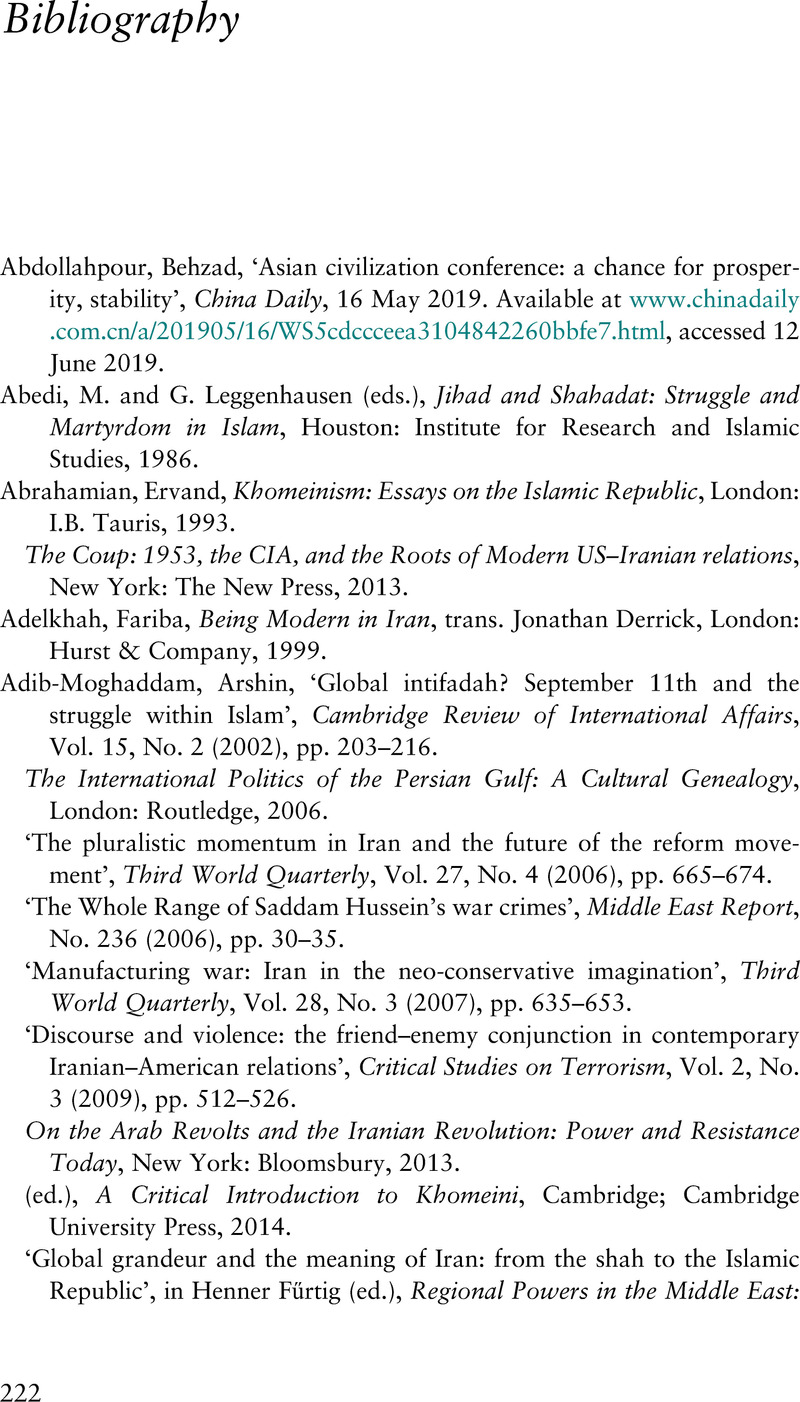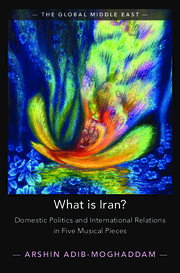Book contents
- What Is Iran?
- The Global Middle East
- What Is Iran?
- Copyright page
- Dedication
- Contents
- What Is Iran?: A Playlist
- Prologue: Iran in the New World Order
- 1 Also sprach Zarathustra: Persian Longitudes
- 2 God and Politics: Inside the Islamic Republic
- 3 Strategic Preferences – Transnational Interests
- 4 The United States, Israel and the Global Right Wing
- 5 Eurasian Iran: ‘Resistance’ or a Persian Empire?
- Epilogue: A Symphony of Flowers
- Bibliography
- Index
- References
Bibliography
Published online by Cambridge University Press: 12 March 2021
- What Is Iran?
- The Global Middle East
- What Is Iran?
- Copyright page
- Dedication
- Contents
- What Is Iran?: A Playlist
- Prologue: Iran in the New World Order
- 1 Also sprach Zarathustra: Persian Longitudes
- 2 God and Politics: Inside the Islamic Republic
- 3 Strategic Preferences – Transnational Interests
- 4 The United States, Israel and the Global Right Wing
- 5 Eurasian Iran: ‘Resistance’ or a Persian Empire?
- Epilogue: A Symphony of Flowers
- Bibliography
- Index
- References
Summary

- Type
- Chapter
- Information
- What is Iran?Domestic Politics and International Relations in Five Musical Pieces, pp. 222 - 234Publisher: Cambridge University PressPrint publication year: 2021



